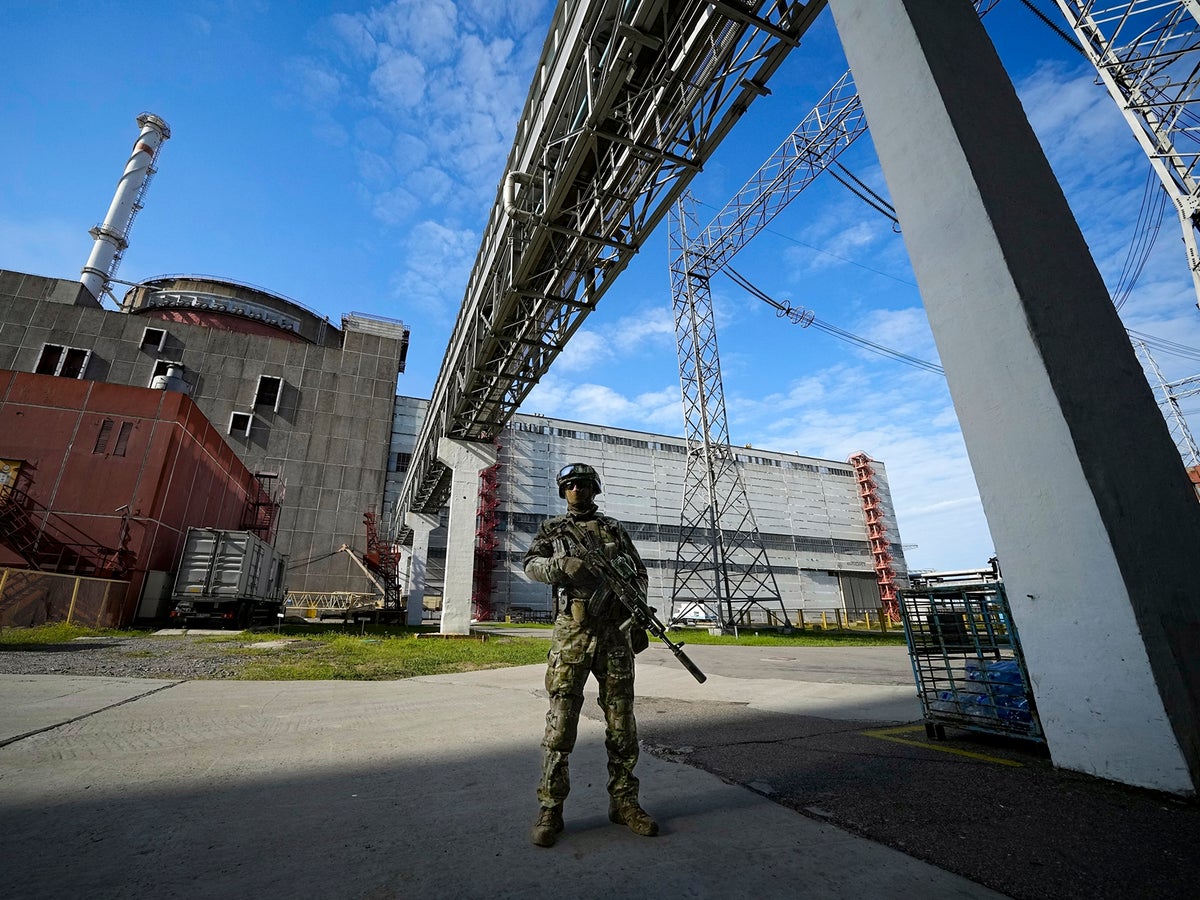
UN inspectors are heading to a Ukrainian nuclear power plant under Russian occupation after missile strikes nearby raised fears of a catastrophic accident.
Meanwhile, Ukraine’s military said it had launched a long-awaited counter-offensive in the country’s south, including the fallen port city of Kherson.
The Zaporizhzhia plant, Europe’s largest nuclear facility, was captured by Russian troops in March and has been a flashpoint in the six-month war, with Kyiv and Moscow repeatedly trading accusations of reckless shelling in the surrounding area.
Ukraine’s energy watchdog last week warned that Russian attacks had damaged the plant’s infrastructure and risked “hydrogen leakage and sputtering of radioactive substances” as Ukrainian staff tried to keep the reactors running. Two of the plant’s reactors were cut off from the electrical grid temporarily last week due to shelling.
With fears mounting of a nuclear accident in a country still haunted by the 1986 Chernobyl disaster, Zaporizhzhia authorities were handing out iodine tablets and teaching residents how to use them in case of a radiation leak.
The United Nations, the United States and Ukraine have called for a withdrawal of military equipment and personnel from Zaporizhzhia to ensure it is not a target. But the Kremlin has ruled out withdrawing its forces from the site on the Dnipro river in southeastern Ukraine.
Moscow said it welcomed a visit from the UN’s International Atomic Energy Agency (IAEA). State-owned news agency Tass reported that Russian foreign ministry spokeswoman Maria Zakharova claimed the Kremlin “had been doing everything possible for it to take place”.
Rafael Grossi, director-general of the IAEA, said: “We must protect the safety and security of Ukraine’s and Europe’s biggest nuclear facility,” in a tweet posted as he prepared to lead the UN delegation to Zaporizhzhia. The IAEA did not say when the team was expected to arrive.
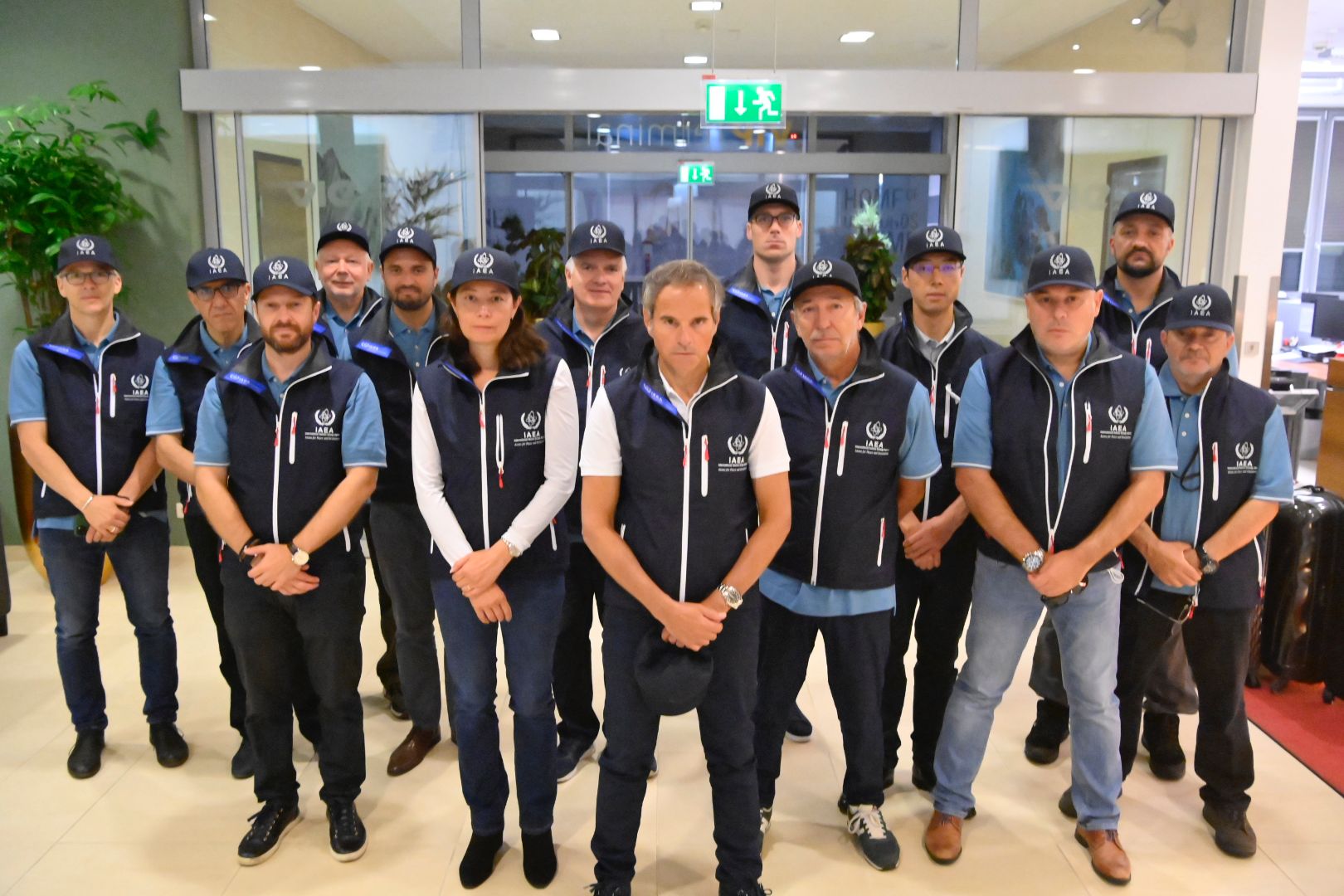
Russian forces fired at Enerhodar, the Dnipro riverside town where the plant is located, late on Sunday, said Andriy Yermak, Ukrainian president Volodymyr Zelensky’s chief of staff. “They provoke and try to blackmail the world,” he said.
Earlier, Ukraine’s military reported shelling of nine more towns on the opposite side of the Dnipro from the Zaporizhzhia plant.
Russia’s defence ministry said its forces had shot down a Ukrainian drone that was trying to attack the nuclear power station. Russian-installed officials also claimed a Ukrainian missile strike punched a hole in the roof of a fuel depot at the Zaporizhzhia plant, the RIA Novosti state news agency reported.
The Independent could not verify reports of attacks. Ukrainian state nuclear company Energoatom said it had no new information about attacks on the plant.
Thousands of refugees, mostly from occupied parts of Ukraine, have been arriving daily at the town of Zaporizhzhia, some 30 miles upriver from the plant, according to volunteers.
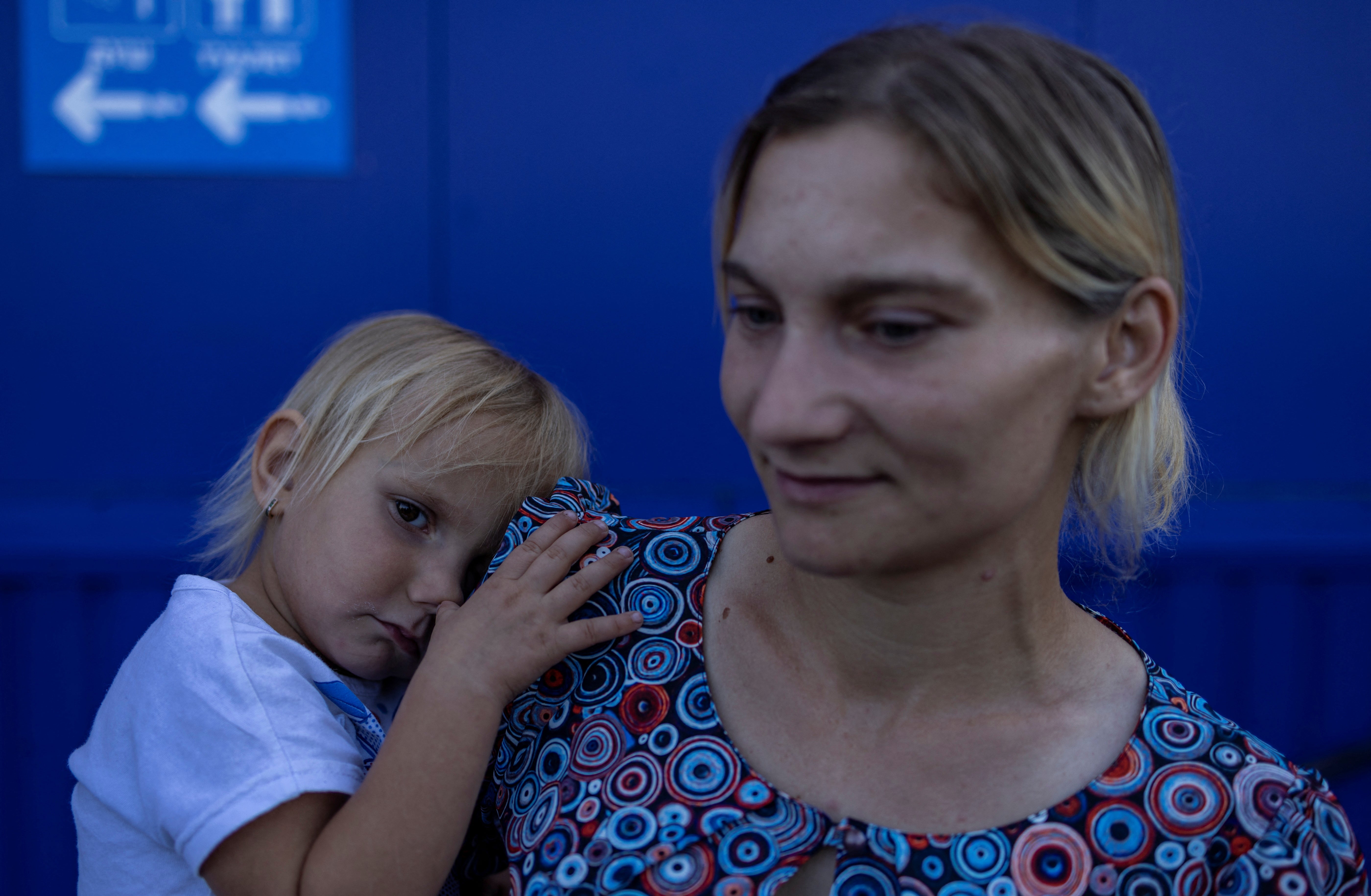
Fight for the south
Six months on from the launch of the Russian invasion, fighting in Ukraine has settled into a war of attrition fought mainly in Ukraine’s east and south.
After two months of talking up a plan to reclaim territory in southern Ukraine lost to the Russians, Ukraine’s military finally announced the start of a counter-offensive.
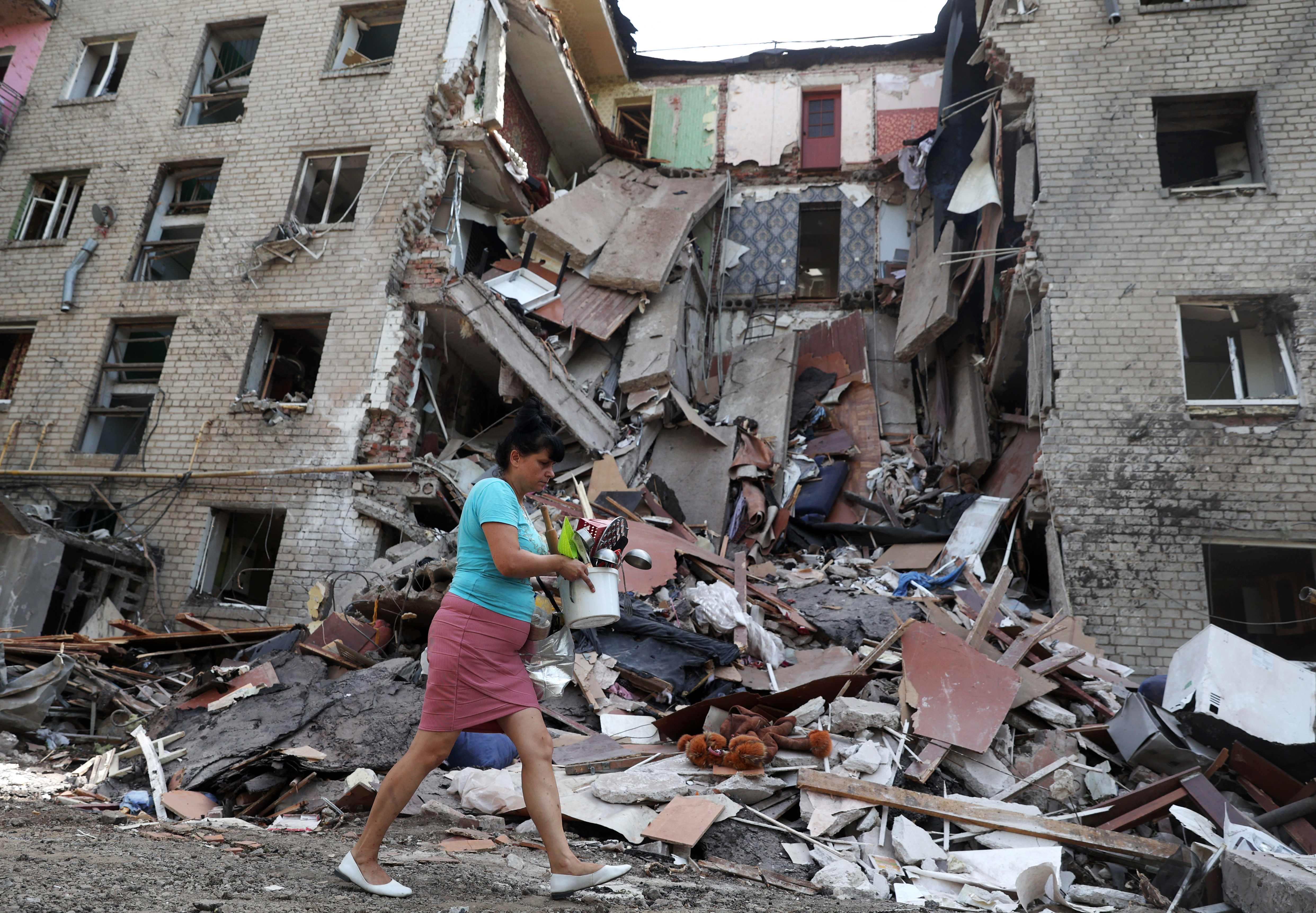
“Today we started offensive actions in various directions, including in the Kherson region,” Ukrainian public broadcaster Suspilne cited southern command spokesperson Natalia Humeniuk as saying. She confirmed the news minutes later at a briefing.
Ms Humeniuk said Ukraine‘s recent strikes on Russia’s southern logistical routes had “unquestionably weakened the enemy”, adding that more than 10 Russian ammunition dumps had been hit over the last week. She declined to give more details about the new offensive.
Ukraine’s military said early on Monday that Russian forces shelled military and civilian infrastructure in five towns in Donetsk Oblast. Regional governor Pavlo Kyrylenko said Russian strikes killed eight civilians in Donetsk on Sunday.
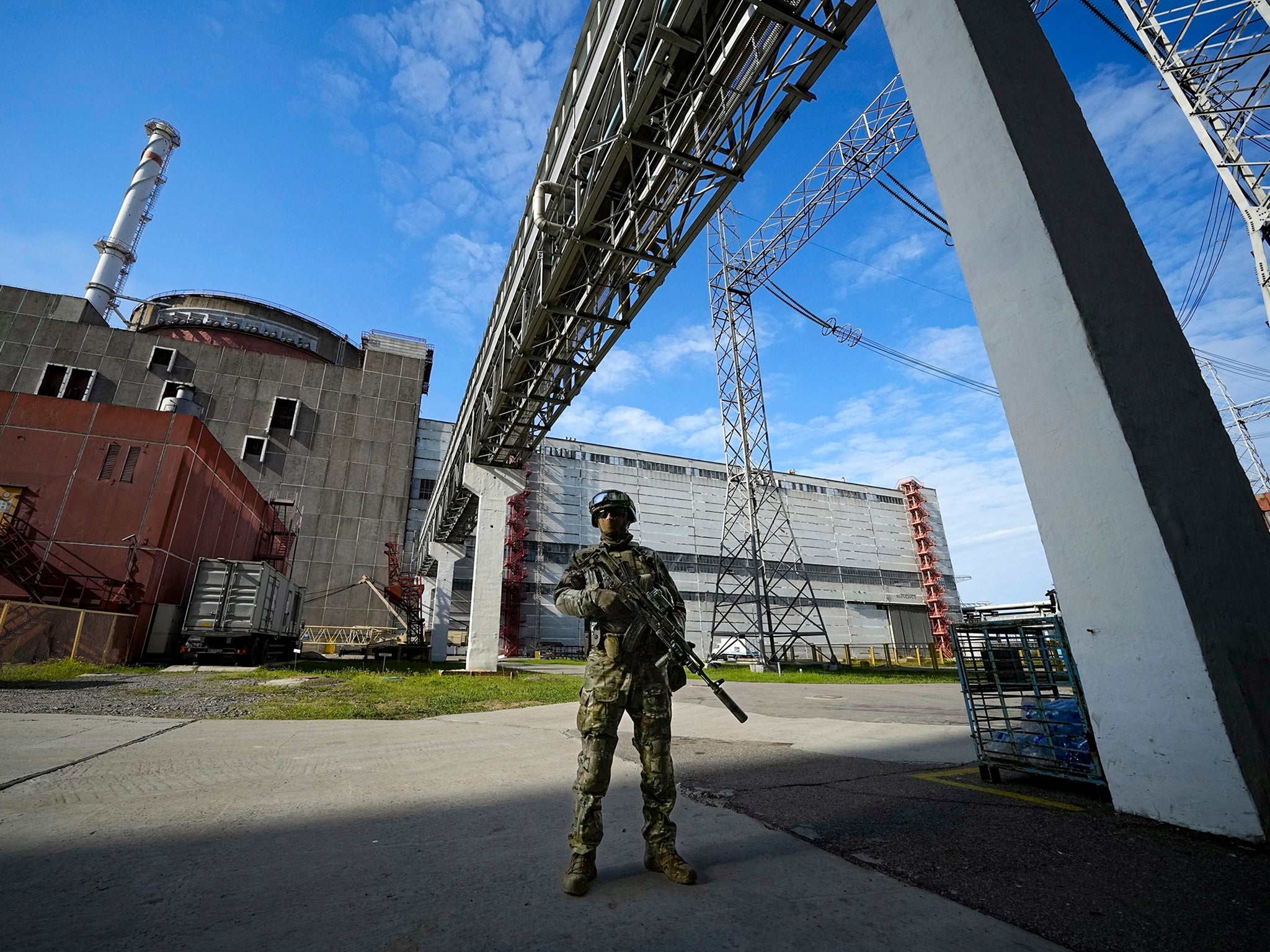
On Monday, Mr Zelensky accused Russia of trying to prevent European nations from filling their gas storage facilities enough to cope with the coming winter. The European Union has agreed to cut gas use to avoid shortages over winter.
Sweden, which along with Finland is pressing to join Nato in response to Russia’s invasion, announced almost £40bn worth of additional military aid to Ukraine on Monday during a visit to Stockholm by Ukrainian foreign minister Dmytro Kuleba.
Mr Kuleba urged Sweden to provide weapons such as howitzers and shells. “Every euro, every bullet, every shell matters,” he said.
Germany will also send more weapons to Ukraine in the coming weeks to help build up the country’s artillery and air defence capacities, chancellor Olaf Scholz told a conference in Prague, where he also reaffirmed Berlin’s support for Ukraine and several other ex-Soviet republics to join the European Union.







